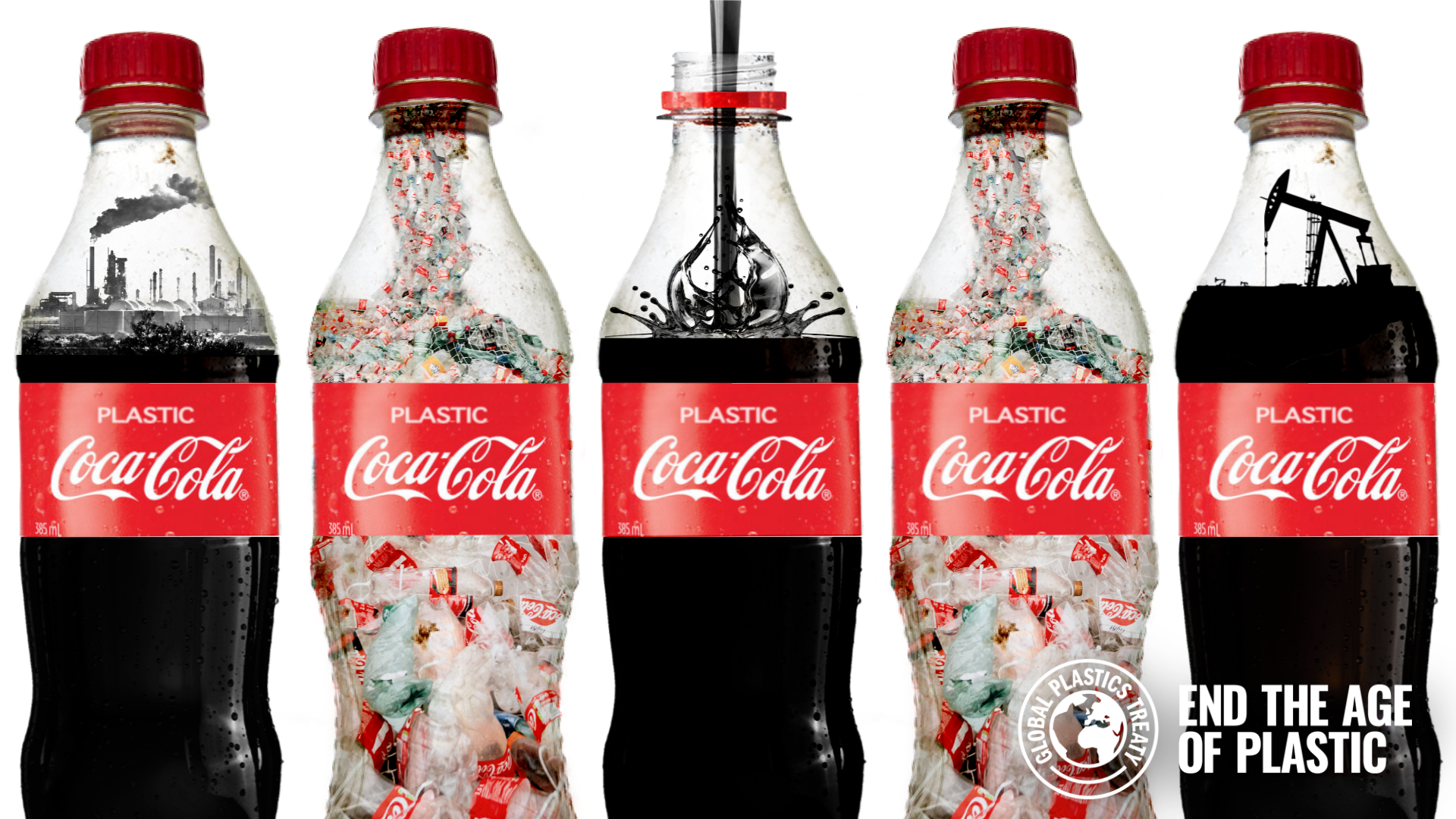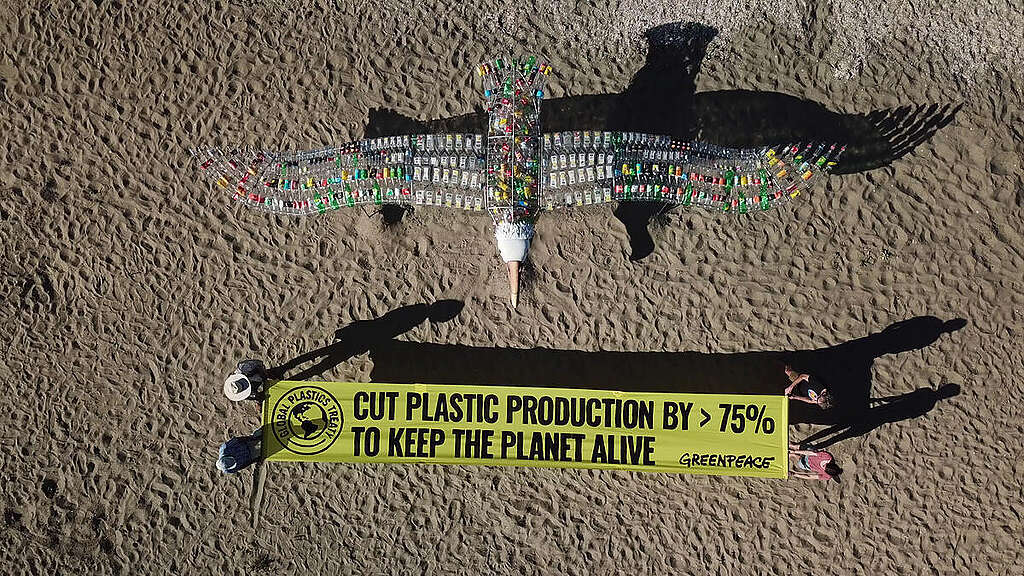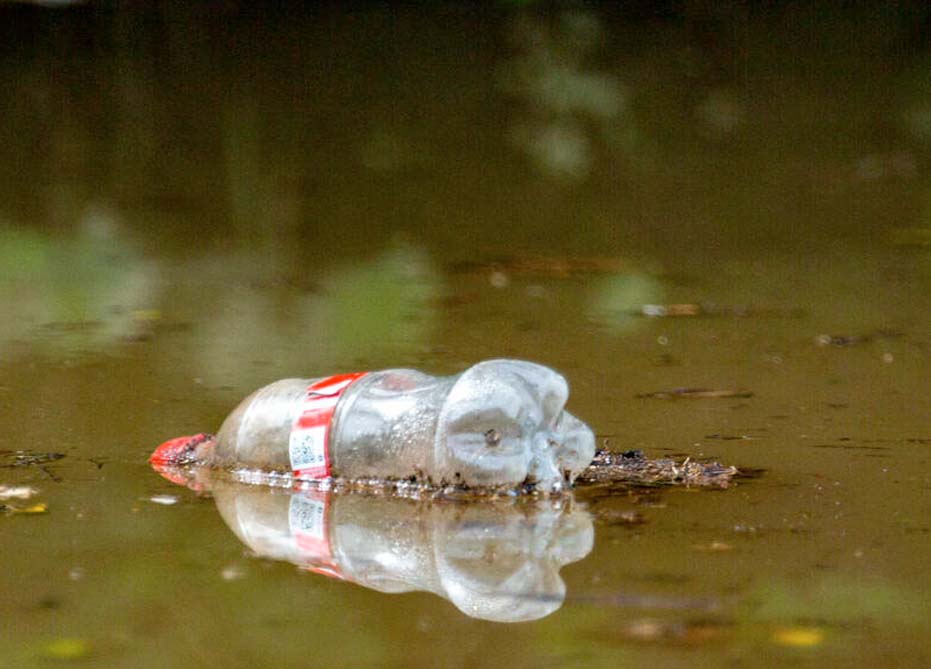A new study has shown that just 56 big multinationals are responsible for more than half of the world’s plastic pollution, with just six of them responsible for a quarter of that.
And guess who was at the top of the list? Who is the worst of the worst. Yep, you got it, our old nemesis Coca-Cola thanks to the vast number of single-use plastic bottles it produces.

Here in Aotearoa, drinks companies like Coca-Cola sell 1 billion plastic bottles every year. Every year!
Recycling is not the answer
Companies like Coca-Cola like to push recycling as the solution because it puts the responsibility on people who buy their drinks, but we know recycling doesn’t work – and worse than that, we know they always knew it didn’t work too. It was always a distraction ploy to allow them to continue producing their rubbish for profit.
Plastic pollution is now so pervasive that it’s in the air that we breathe, the food that we eat, the water we drink, and it’s even been found in our blood and placenta. The health impacts of that are only just starting to be understood but there’s already evidence that microplastics are linked to cancer and other health issues such as reduced fertility, cardiovascular disease, lung health, and birth defects.
We have to stop plastic production.
As the researchers in this latest study conclude – for every percentage increase in plastic produced, there is an equivalent increase in plastic pollution in the environment.
We cannot recycle our way out of the plastic pollution crisis.
“Production really is pollution,” says one of the study’s authors, Lisa Erdle, director of science at the non-profit The 5 Gyres Institute.
That’s why the Global Plastics Treaty negotiations underway right now are so important. A strong treaty can force companies like Coca-cola to move away from single-use plastics to better, more circular systems of refill and reuse.

The industry knows it, and they’re trying hard to undermine progress.
The number of fossil fuel and petrochemical industry lobbyists has increased by more than a third at UN talks to agree the first global treaty to cut plastic pollution, analysis shows.
After all, the oil industry spawned the plastic industry, and as the world moves away from burning fossil fuels, big sees big plastic as a lifeline.
The 196 lobbyists registered for the talks now underway in Ottawa is a 37% increase from the 143 registered at the last talks in Nairobi. And that was a 36% increase on the previous year’s number.
Increased plastic production is a big part of the fossil fuel industry’s business plan for the future, and any of our attempts to stop plastic production, such as those being discussed at the UN talks, are a serious threat to their profits.
Ban the bottle
We must push our Governments to fight for a strong plastics treaty and take action to curtail plastic production, such as measures to stop the sale of single-use plastic products. We’ve made some progress there—with the ban on single-use plastic shopping bags and in pushing for more regulation to phase out some other plastic products, like plastic stirrers and some wrapping. But so far, drinks companies like Coca-Cola have avoided any significant regulation.
Greenpeace is calling on the New Zealand government to ‘ban the bottle’, and well over 100,000 people have signed our petition.
You can add your name here and now:
PETITION: Ban the bottle
If business as usual continues, industry estimates predict that plastic production could triple by 2050. Greenpeace is proposing a global target within the Treaty to reduce plastic production by at least 75% by 2040 (from a 2019 baseline), to ensure the best chance of meeting the 1.5°C climate target and to address the full life cycle impacts of plastic.
According to recent polling, 80% of people worldwide support a Global Plastics Treaty that cuts production to stop biodiversity loss and limit climate warming to 1.5 C. Globally, over 2.4 million people have already signed a Greenpeace petition in support of a strong Global Plastics Treaty.
You can add your name to the petition here:

Call on the NZ Government to stand firm and support a strong global plastics treaty.
Take ActionHow much do you know about plastic pollution? Take our quick quiz here to find out!



